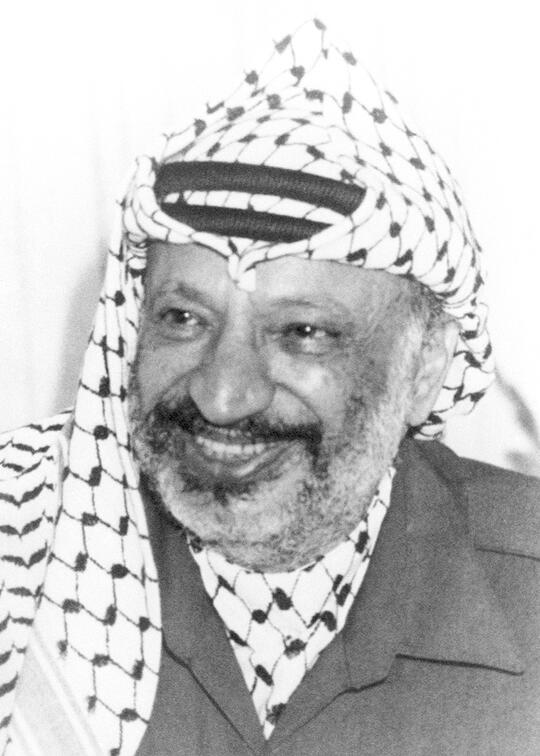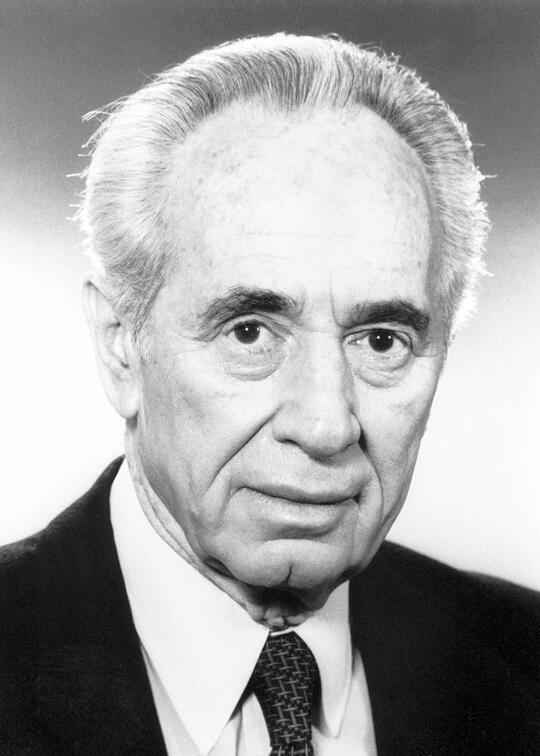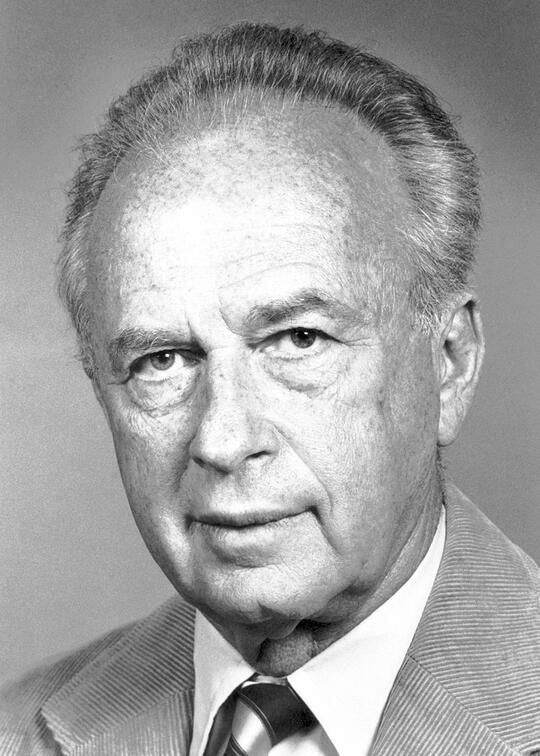1994
Yasser Arafat
Shimon Peres
Yitzhak Rabin
for their efforts to create peace in the Middle East

Yasser Arafat (1929 - 2004)
Palestine
A Pistol and an Olive Branch
In 1974, Yasser Arafat addressed the UN General Assembly. He said he was holding an olive branch for peace in one hand and a freedom fighter's pistol in the other. Twenty years later he and the Israeli leaders Peres and Rabin received the Peace Prize for having opted for the olive branch by signing the so-called Oslo Accords in Washington. The agreement was aimed at reconciliation between Israelis and Palestinians. Arafat grew up in Cairo and Jerusalem. He took part in the war against the new state of Israel in 1948, when many Palestinians were expelled. As a qualified engineer, he took a job in Kuwait. From there, he organized the guerrilla group Fatah, which attacked Israel. Following Israel's occupation of the West Bank and Gaza in 1967, Arafat became the leader of the PLO (Palestine Liberation Organization), an umbrella organization for Palestinian guerrilla groups. The groups resorted to terror to attract world attention, but it gradually became clear to Arafat that he would have to accept the state of Israel for the USA to be willing to mediate in the dispute. He approved the meeting of Palestinian negotiators with Israelis at secret negotiations in Oslo.
Shimon Peres (1923 - 2016)
Israel
For Reconciliation with the Palestinians
In the winter of 1993, secret negotiations between Palestinians and Israelis took place in the Norwegian capital Oslo. They resulted in the so-called Oslo Accords, signed in Washington the same year. The agreement aimed at reconciling the two peoples, with Israel gradually withdrawing from occupied territories and granting the Palestinians self-determination. Israel's Minister of Foreign Affairs Shimon Peres was in charge of the negotiations on the Israeli side, and in the autumn of 1994 he shared the Peace Prize with his own Prime Minister Yitzhak Rabin and the Palestinian leader Yasser Arafat. Shimon Peres was born in Belorussia. To escape the persecution of Jews there, the family fled to Palestine in 1934. Peres studied agricultural science and joined the party of the Zionist leader David Ben Gurion. When Arab forces launched their attack on the new state of Israel in 1948, Peres was given the chief responsibility for securing military equipment for Israel from abroad. Later he organized Israel's nuclear program and is regarded as the father of Israel's atom bomb.
Yitzhak Rabin (1922 - 1995)
Israel